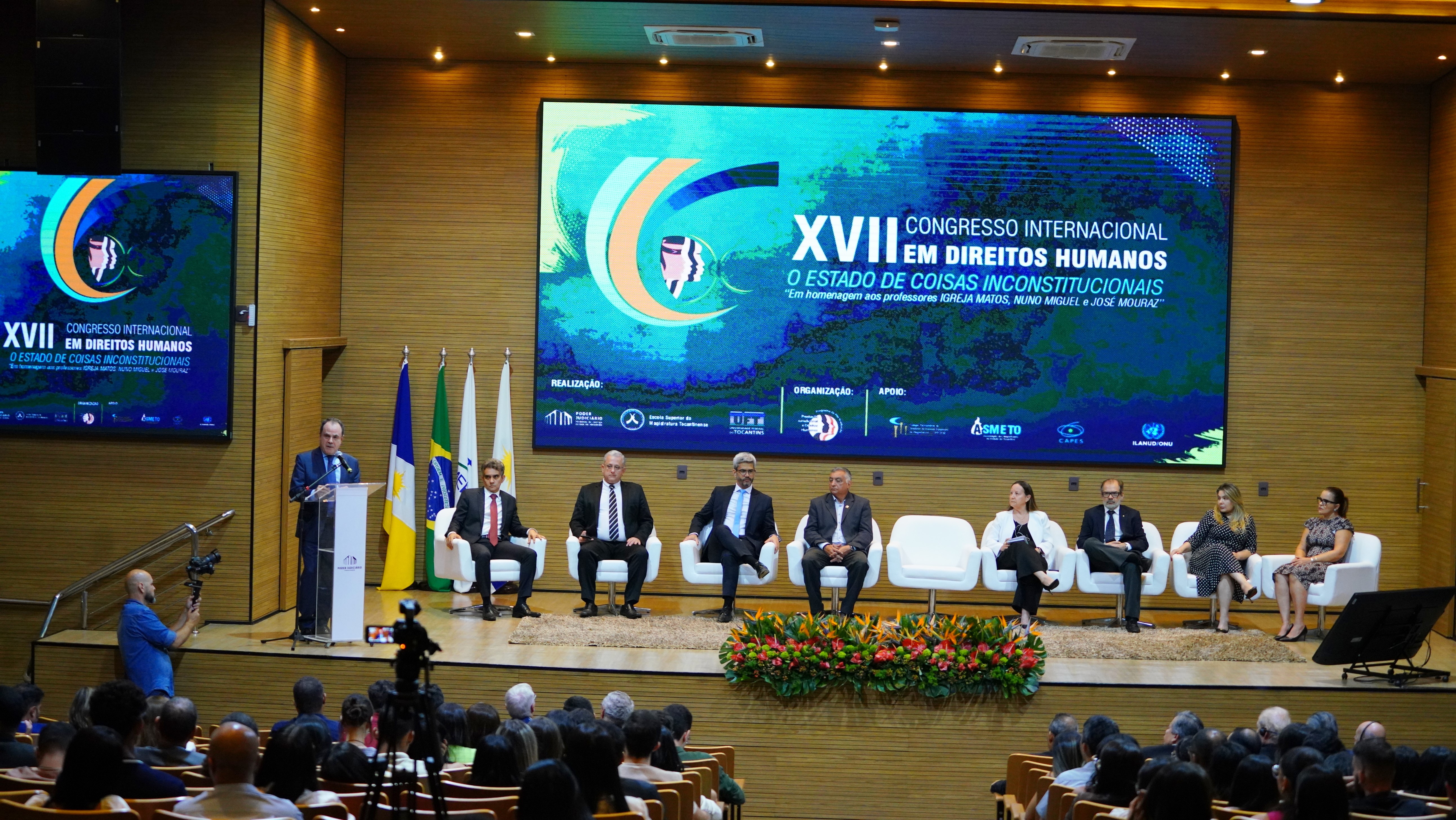
The joint effort, seeking ways for the defense of human rights and for a faster, and more effective justice guided the opening on Wednesday (October 2nd), the 17th Edition of the International Congress on Human Rights. The event that has as its theme on "The State of Unconstitutional Things" goes until Friday (October 4th), in the auditorium of the Court of Justice of the State of Tocantins and at the Superior School of the Judges of the State of Tocantins (Esmat).
In the opening speech, Justice Marco Villas Boas, General Director of Esmat, based on the discussions of the National Council of Justice (CNJ) to put into practice a more humanized criminal execution to welcome speakers, scholars and participants of the Congress. "We obviously expanded the discussion on the subject because there is not only one recognition of the State of Unconstitutional Things in relation solely and exclusively to the prison issue. The State of Unconstitutional Things is present in Brazilian society and it is a struggle of all of us to overcome disorder, for an effective constitutional order, which guarantees fundamental rights and promotes the well-being of all", he pointed out.
The Justice also pointed out, within this same concept, the massive violation of fundamental rights, such as criminal burning, deforestation in the Amazon, disrespect for indigenous peoples, women and children and adolescents. "These are situations of massive violations that need attention and repair," he said, explaining that the concept of the State of Unconstitutional Things (ECI) was created by the Colombian Constitutional Court and declared when the Court is faced with a situation of massive and widespread violation of fundamental rights that affects a wide number of people.
Colombia was the protagonist, but the topic discussed there gained influence in Latin America and Brazil.
Justice Maysa Vendramini Rosal, Chief Justice of the State of Tocantins, reinforced the importance of the Congress for dialogue on fundamental issues that permeate society, as well as being a challenge as defenders of constitutional rights and guarantees. "The central theme of this edition, the State of Unconstitutional Things, invites us to a necessary reflection, because we know that fundamental rights, although guaranteed in our Constitution, often do not materialize efficiently in the lives of citizens. We need to seek together mechanisms to combat any situation that violates the rights of the human person, which is contrary to our Constitution", she said.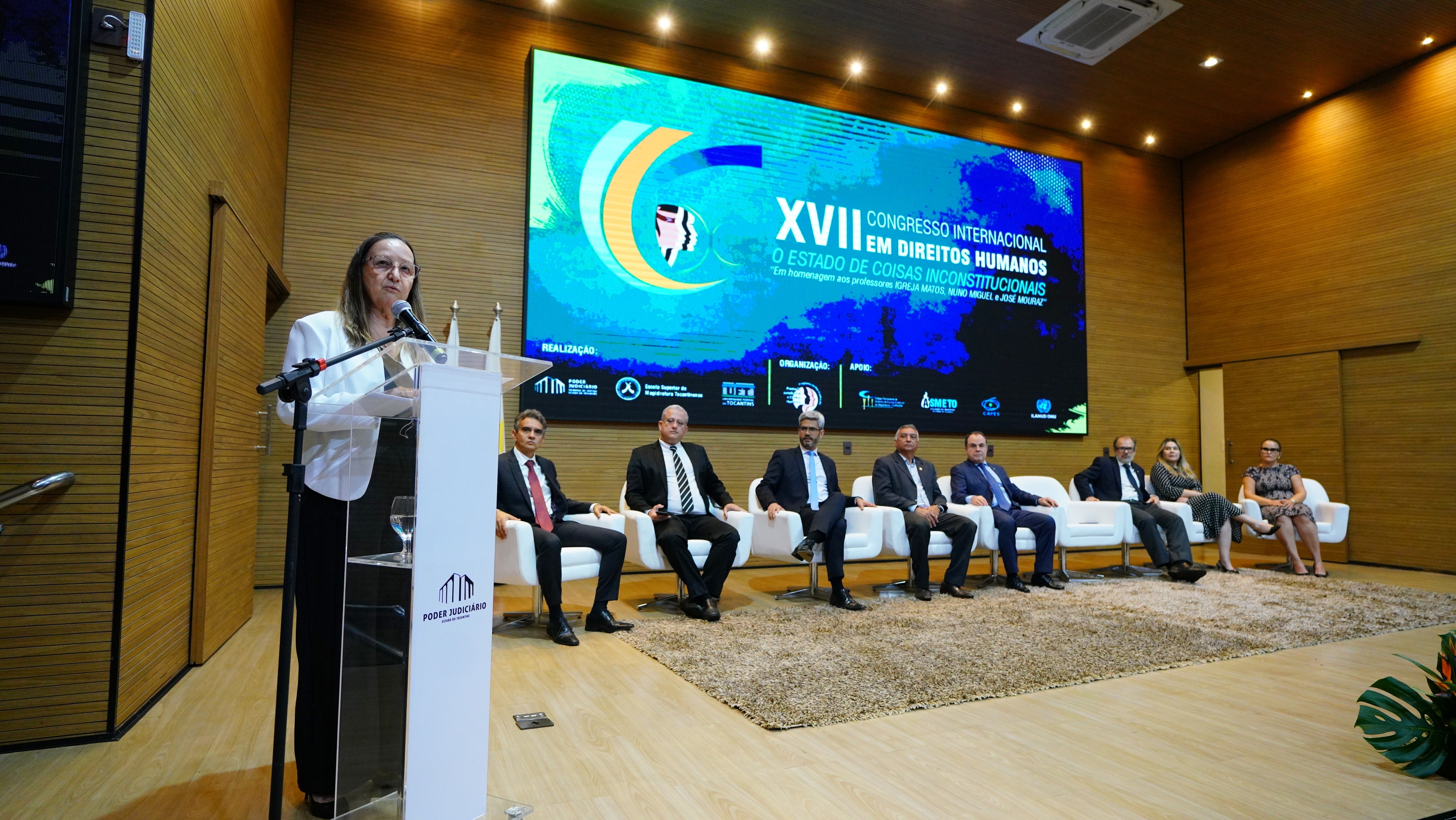
She stressed the role of the judiciary in this context. "It is a fundamental role, as are all the organs that make up the Justice System. Each of these institutions must act with the responsibility to ensure that the work performed is a true instrument of social transformation.
I wish you all an excellent Congress, I hope that at the end of these days of knowledge and exchange of experiences, we can move forward firmly in the promotion of justice, equity, and human dignity, concluded the Chief Justice.
Doctor Professor Tarsis Barreto, coordinator of the master’s degree, recalled the trajectory of Esmat and UFT for the implementation of the Professional and Interdisciplinary Master’s Program in Judicial Provision and Human Rights (PPGPJDH) that has already issued more than two hundred and fifty diplomas and, according to him, places Tocantins as the State with the largest number of Judges masters and doctors.
The Professor pointed out that the Esmat Journal has already published articles by authors from twenty countries, and the approval of the doctorate is another great achievement for the State. "Offering an international Congress of the highest level absolutely free for society, that is, transcends the goal of qualifying Judges and servers, this occurs to the benefit of the society of the State of Tocantins," he emphasized, adding that everything is only possible because there is "enthusiasm".
Opening lecture - The judiciary as a driving force for the promotion of human rights
"Correlation between the State of Unconstitutional Things and Social Effectiveness of Fundamental Rights", with the Justice José Manuel Igreja Matos, Judge Nuno Miguel Pereira Ribeiro Coelho and Judge José Mouraz Lopes, was the theme of the first lecture of the Congress. Justice Marco Villas Boas, General Director of Esmat, mediated the panel.
Church Matos opened the panel talking about the role of the judiciary as a driving force for the State of Unconstitutional Things (ECI) and, while telling real stories, stressed that it is necessary to transform the human rights theme into a "screw key" to be effective in the lives of people.
He pointed out some "structural" dangers that the judiciary faces and that may prevent it from being independent, effective, operational and impartial. Among these dangers is when the citizen stops seeking justice because he believes that the system does not work. "It is not the justice of Judges, but the justice of all. The judiciary is the driving force for the recognition of the state of unconstitutional things and the promotion of human rights".
Nuno Miguel spoke about the ECI and the society of exception and emergence, the procedural dimension of the ECI - the structural disputes and the technological process, the guarantee of constitution and the fundamental rights guarantee systems.
Mouraz Lopes concluded the panel addressing the theme on "Prisons, dignity and human rights: a constitutional paradox difficult to achieve". The magistrate began his speech by saying that those who are not in prison or have never been do not know the tragedy of a prison.
According to him, imprisonment is a radical collision with the exercise of fundamental rights, specifically the right to liberty and the right to human dignity and that there are unresolved issues such as time incarceration, material conditions in which the prison sentence is executed; overcrowding, health and consequences for society.
Mouraz Lopes also concludes that prison is something that does not make sense theoretically, but there is still no legal substitute as a social alternative. "The reality is that there are 12 million people trapped in the world and there is a consequence behind it for society, for the family". He also claimed that this reality cannot continue, for it is not because there are more prisoners that crime has decreased. "This is not utopian there are concrete examples that lower incarceration rates reduce crime"
To change this reality, the Judge emphasized that it is necessary to judicialize the prison system for the guarantee of rights and implementation of non-custodial intervention meters. "It is not only a political and social problem, but also a brutal legal one".
Tribute
Also during the opening, the Portuguese Judges José Igreja Matos, Nuno Miguel Pereira Ribeiro Coelho and José António Mouraz Lopes, who have been present at the event since 2013, when the first class of the Master in Judicial Provision and Human Rights began, Justice Marco Villas Boas, received from the Director of Esmat; from Justice Maysa Vendramini, General Chief of Justice; and from Justice João Rodrigues Filho, the medal of Academic Merit. They were also honored with the cover of the 28th edition of Esmat Journal, launched at the event.
Culture of the state of tocantins
The diversity of the culture of the State of Tocantins was also present at the opening of the 17th International Congress on Human Rights. The tradition of the June festivals of the city of Palmas was represented by the Cafundó do Brejo group, one of the oldest in the capital, which danced to the music of “Amarelo Azul e Branco” (Yellow, Blue and White), from the singers born in the State of Tocantins, Ana and Vitória (Anavitória).
The participants also watched an institutional video about the history of the Congress and its influence on society throughout the editions.
Device of honor
Were present, Deusiano Amorim, Secretary of State for Citizenship and Justice; Luciano Casaroti, General Attorney of Justice, representing the governor of the State of Tocantins, Wanderlei Barbosa; Álvaro Manzano, Attorney of the Republic; Professor Tarsis Barreto, coordinator of the Stricto Sensu Post-Graduation course in Judicial Provision and Human Rights; Jandra de Paula, General Secretary of the Bar, Tocantins section, representing President Gedeon Pitaluga; Judge Allan Martins Ferreira, President of the Association of Magistrates of the State of Tocantins; and Orfila Leite Fernandes, Vice-President of the Association of the Servers of the Court of Justice of the State of Tocantins.
Check out all the programming of the Congress here.




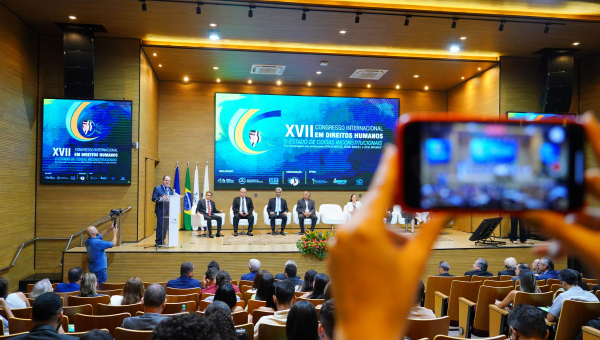
_thumbnail_thumbnail.jpeg)
_thumbnail_thumbnail.jpeg)
_thumbnail_thumbnail.jpeg)
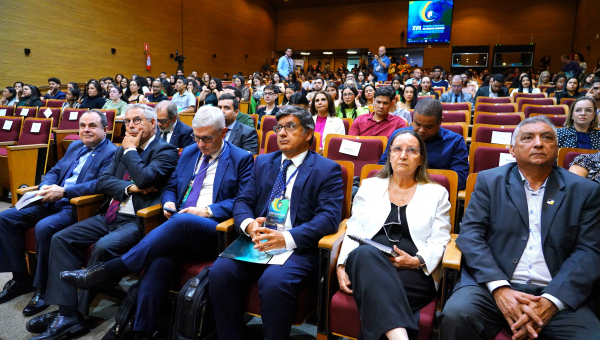
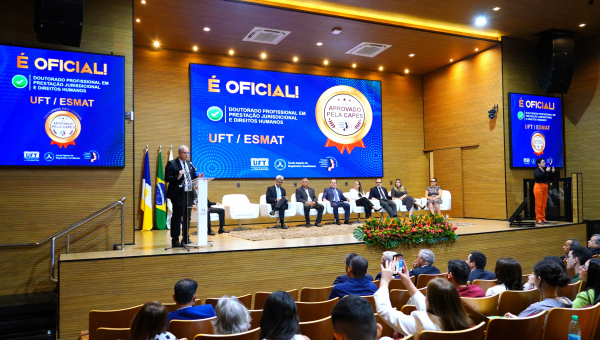
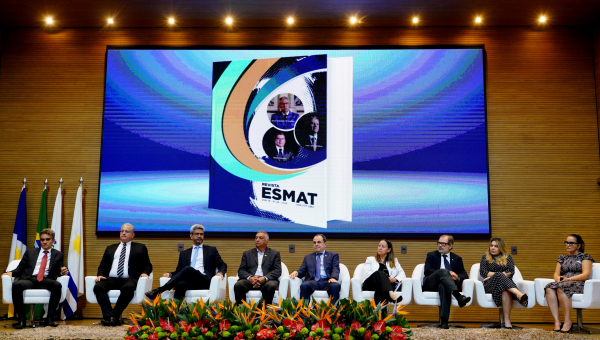
_thumbnail_thumbnail.jpeg)
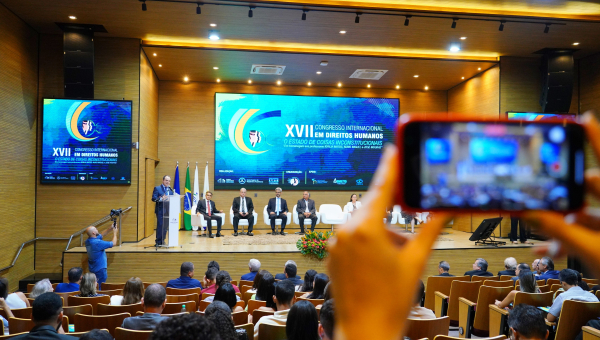
_thumbnail.jpeg)
_thumbnail.jpeg)
_thumbnail.jpeg)
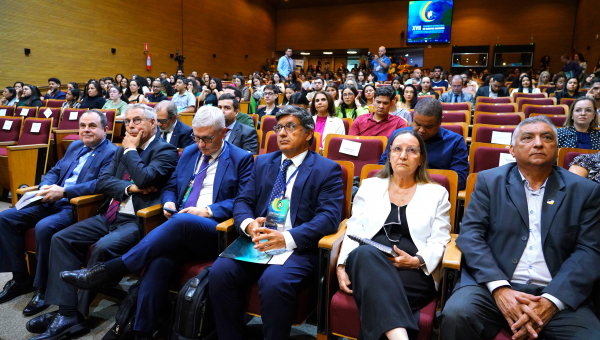
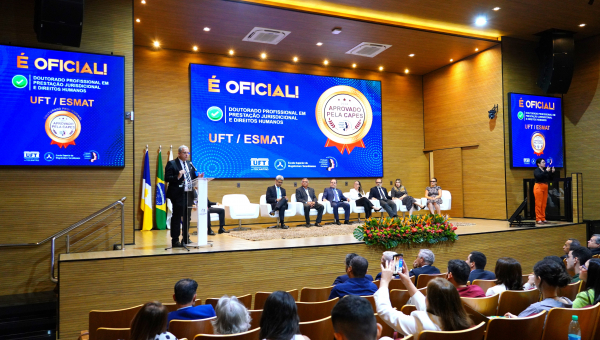
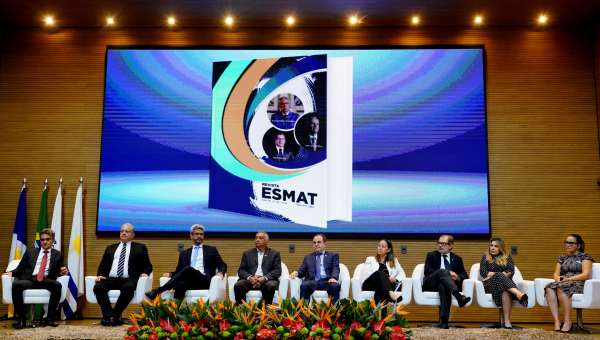
_thumbnail.jpeg)
